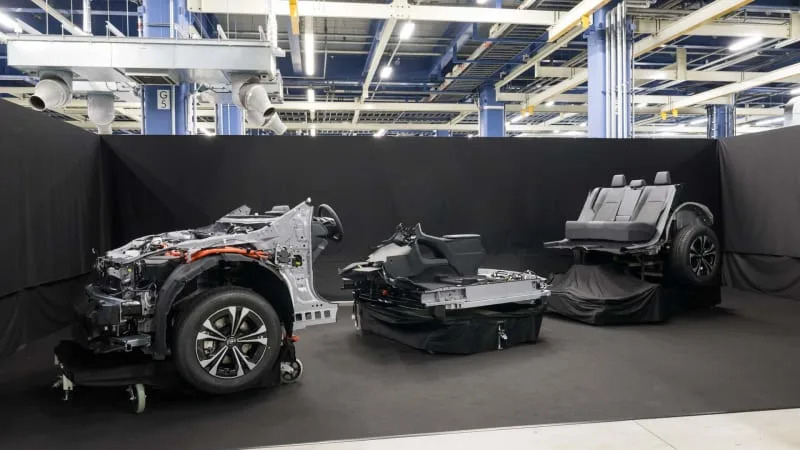Honda isn’t the only automaker who’ll be at the Japan Mobility Show premiering a new electric sports car study. Lexus Japan posted a teaser of a new battery-electric concept it will have on display, the concept a precursor for a car entering production in 2026. We just discussed other vehicular plans Lexus has for the same year, those being a V8-powered street-legal sports car derived from a new race car developed for the World Endurance Championship’s GT3 class. What we’ve been shown of this electric concept points to another sports car or a GT, given the low, wide face, large intakes, and what could be cameras acting as side-view mirrors. It’s possible what’s on display has some connection to this Lexus-branded concept shown on a slide during a Toyota financial presentation earlier this year.
Parent company Toyota has teased a number of EV plans in the past few months, much of it to do with what’s under the skin and much of which feels like we’re beginning to see the fields of concepts teased back in 2021 and 2022 take shape. We have no idea where this coming Lexus fits in, but not only will the luxury arm partake of powertrain developments, Toyota CEO Koji Sato told Automotive News Lexus is going to lead the way with the EV push. Lexus boss Takashi Watanabe told Automotive News, “In 2026, we will introduce the next-generation battery EV that re-innovates the vehicle modular structure, significantly alters our production methods and completely re-imagines the software platform.”

Toyota’s battery plans expect next-gen packs to deliver up to 500 miles on a charge by 2026. The solid-state batteries coming in the year or two afterward would jack range out to about 620 miles and be capable of recharging from 10% to 80% in about 10 minutes. Beyond the power source, the automaker’s working on new production processes centered on a modular architecture of three large castings. The forward segment contains the power electronics, a potential front motor, the steer-by-wire assembly, and suspension; the middle holds the battery pack beneath the cabin, the rear module contains a potential second motor and the suspension. Advances in the manufacturing processes for these castings will supposedly lower vehicle weight, increase structural integrity, and streamline changes for the casting molds enabling molds to be reconfigured in 20 minutes instead of 24 hours.
Naturally, software will be a part of this transformation, Lexus saying it intends to create digital platforms and offerings that help it be more unique. The brand targets one million annual EV sales by 2030 and an EV-only lineup by 2035. It has two battery-electric cars on the market now, the UX 300e in Europe and the RZ 450e here.
Read the full article here


